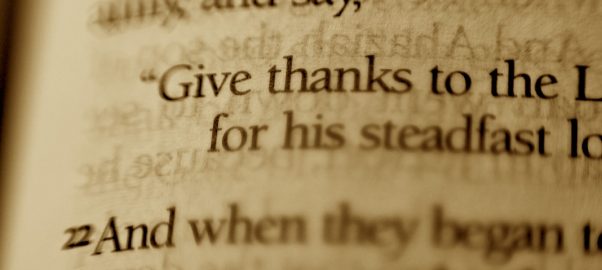
As my wife Kathy was walking from her arrival gate to the trains at the Denver airport one evening, she observed in one person’s behavior a portrait of our self-centered era. The person was very well-dressed, with every item chosen carefully and labeled just so. As they were speaking on the phone, Kathy heard these words in a loud voice, “O my, it is so noisy here. I think I am going to have a panic attack.” Kathy was concerned and prepared to help. The next words were all about parties and restaurants and how crazy other people are. This person jauntily walked in another direction, looking at themselves in every reflective space while carrying on an insipid conversation.
In this moment, Kathy saw a microcosm of the self-absorption of modern society. Panic attacks are real and over the years we have helped many who suffer from them. To use such a phrase in casual conversation was foolish and unveils the weaponizing of psychological terms to serve selfish purposes. Obsession with image, selfish obliviousness of all around, and the feeling that the world somehow owes us are all part of the narcissistic playbook.
This same lust for personal gratification and focus on superficial sufferings is the driving force behind the recruitment of vulnerable adolescents into the “welcoming” communities of the gender anarchists. One a good day, adolescence for young women and men is challenging. Wanting to be different from one’s parents and accepted by peers are normal realities, but the radicals take it further, preying on struggles with self-image and hypnotically suggesting one can be any number of genders and even change biological identity.
There is an antidote for these afflictions: Thankfulness. Also understood as gratitude, this is a powerful tonic for personal and social liberation. From the ancient scriptures to modern psychological studies, thankfulness is celebrated as necessary for human flourishing. (See our take on gratitude in our new book, Life in 5D: A New Vision of Discipleship, found at www.discipleshipdynamics.com)
Thankfulness is more than immediate gratitude for current positive circumstances. There are four facets of this amazing characteristic. First, it is a disposition deeply rooted in recognizing that all of life is a gift from the Creator. The giftedness and givenness of life are extraordinary in themselves. The fact we are alive and able to think about these things is extraordinary. We did not create ourselves. Our parents were subcontractors of a divine architect who cares about us from conception to coronation.
A second facet of thankfulness arises from appreciation of the simple blessings we take for granted: food and shelter, family and friends, work and play, and so much more. Even in very distressing circumstances, thankfulness arises from our awareness that we are able to endure and come through such trials a better person.
A third facet is found among those who are serious Christians: thankfulness for our salvation by the grace of God. We cannot earn the favor or merit we need before a holy Lord…but Jesus the Lamb of God has died in our stead and as the Risen Lord he is our Advocate. We are considered just and holy before God!
A fourth (and there are many more) facet of thankfulness comes from realizing that we are new creations in Christ, with a divine purpose and every resource we need to carry out the mission of God in our world. It is astonishing to consider the “divine inefficiency” of using our voices and acts of kindness, our halting speech and imperfect deeds to help repair the world.
This Thanksgiving, let’s remember the Pilgrims and other historical moments of goodness where people cooperated across cultural and ethnic divides. May we humble ourselves, recognize the giftedness of life, and aim to be an answer to the spoken and unspoken prayers of those in need.
